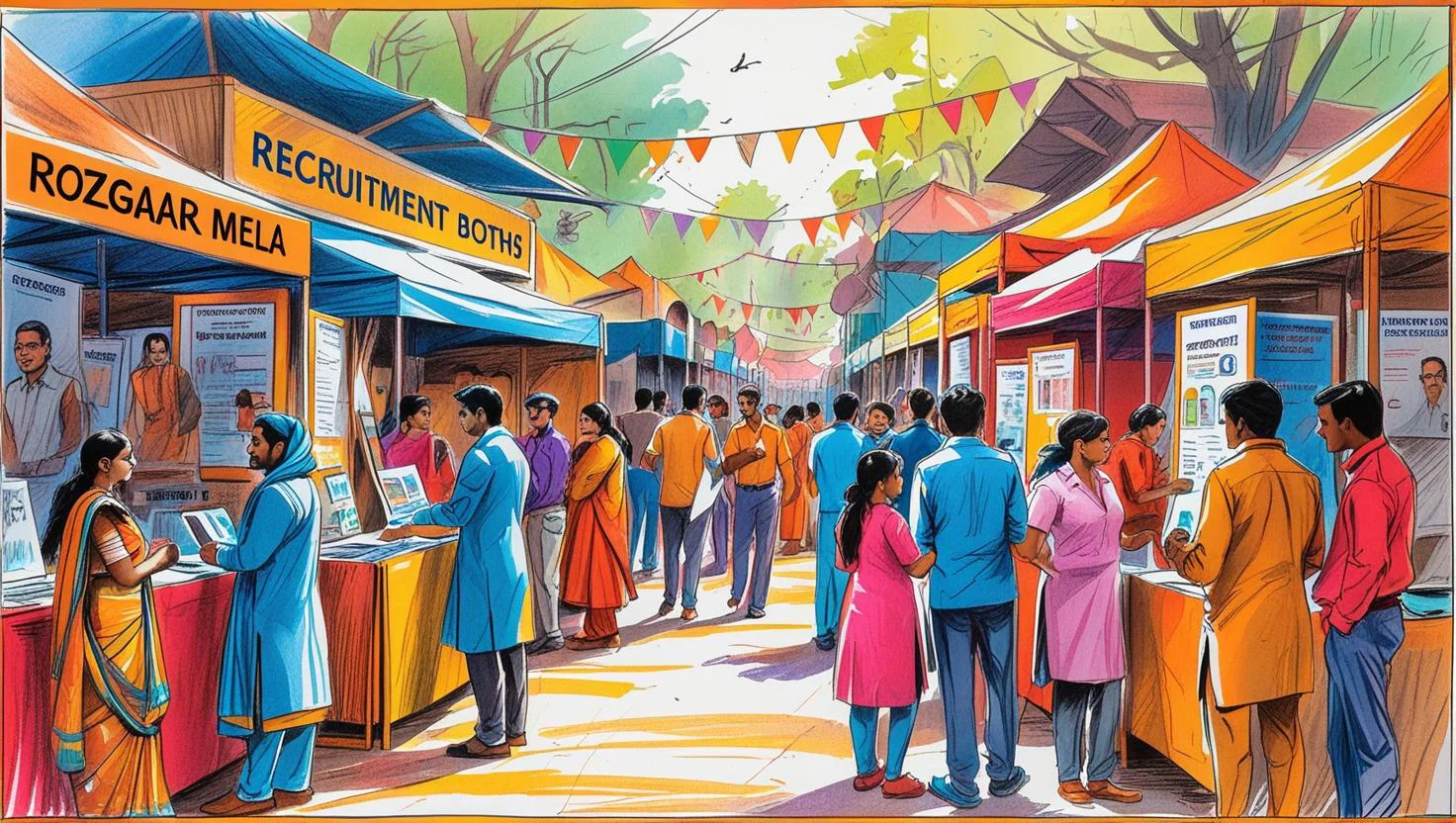Union Minister Kiren Rijiju on Friday passionately advocated for the Northeast to emerge as a pivotal growth engine for India, hailing Prime Minister Narendra Modi’s vision for fast-track employment generation and inclusive regional development. Speaking at the impactful Rozgar Mela in Dimapur, Nagaland’s commercial nexus, Rijiju addressed hundreds of young appointees, part of the 51,000 individuals across India who received appointment letters in diverse government departments. This significant event not only marked a substantial step in employment but also symbolised a new era of recognition and integration for the historically peripheral Northeast region.
This edition of the Rozgar Mela transcended a mere recruitment drive, representing a paradigm shift in governmental engagement with its youth. Rijiju highlighted the unprecedented direct address by the Prime Minister to the appointees, contrasting it with the quiet arrival of appointment letters in previous eras. This ceremonial approach, he underscored, signifies the profound importance the current leadership places on youth empowerment and transparent governance. The 6th Rozgar Mela witnessed over 51,000 young individuals recruited into key sectors, including Railways, Postal Services, Banking, Education, Labour & Employment, and Home Affairs, a significant acceleration compared to historical bureaucratic delays that often spanned five to seven years.
The Union Minister articulated how Prime Minister Modi has systematically dismantled recruitment bottlenecks, establishing a mechanism for prompt vacancy fulfillment through regular Rozgar Melas held every three to four months. This consistent cadence of recruitment, once unimaginable, is now a tangible reality, providing stable career pathways for thousands. Rijiju urged the new appointees to embrace a mindset of national service, irrespective of their specific roles within civil departments or uniformed forces. He stressed that every contribution, whether in Agriculture, Forests, or Banking, is integral to the collective machinery propelling India towards becoming a developed nation by 2047, coinciding with 100 years of independence.
Rijiju, a prominent leader from Arunachal Pradesh, spoke with deep conviction about the visible socio-economic transformation sweeping across the Northeastern states, particularly in Nagaland. He enumerated concrete advancements, noting that decades-long aspirations for improved connectivity, water supply, and electricity have materialised. “Every village in Nagaland, from Mon to Phek, from Kiphire to Dimapur, is now connected with quality roads,” he affirmed, detailing the widespread availability of 4G mobile networks, reliable water pipelines, and consistent electricity. Furthermore, he highlighted the impact of schemes like PM-Kisan benefiting farmers, maternal support for women, and the expanded reach of gas connections to rural kitchens, fostering more equitable living standards.
Crucially, Rijiju connected development to regional stability, asserting that sustained peace and security are non-negotiable prerequisites for attracting vital external investment and technology. Drawing on the region’s past challenges, he emphasised the collective responsibility to cultivate a conducive atmosphere of peace and hospitality. Concluding his address, Rijiju reinforced the vision of a “Viksit Bharat” (Developed India) where the Northeast transitions from a beneficiary to a dynamic growth engine. He reiterated the profound shift in national perspective, where the Prime Minister now directly engages with the region’s unique aspirations and cultural heritage, marking a historic leap towards inclusive prosperity for all.
Also Read: Delhi launches underground power cable pilot at Shalimar Bagh colony


